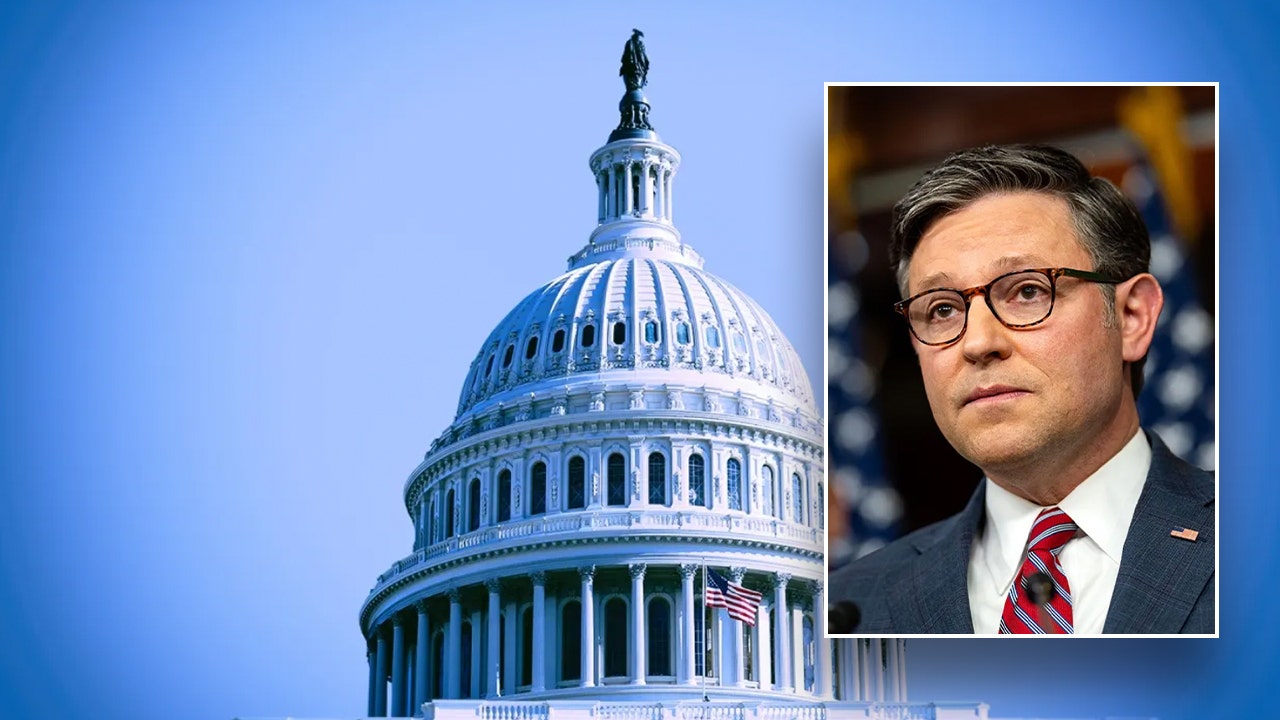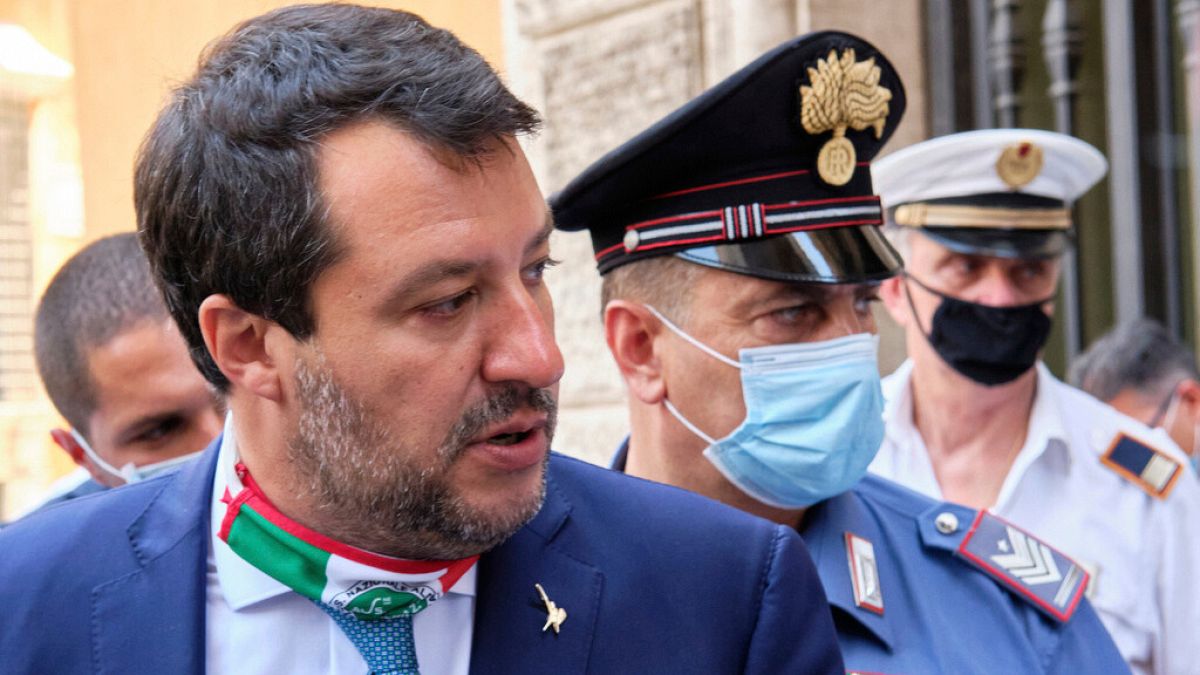Connecticut
Here are 7 Hartford development projects to watch this summer. ‘Downtown housing is the thing’

HARTFORD — As Hartford emerges from a bruising pandemic, the downsizing of office leases in and around downtown — and the uncertain return of workers to the city from home offices — remains one of the biggest economic challenges the city will face in the coming years.
But development efforts — slowed but not stopped in the aftermath of COVID — are pushing ahead to better balance the downtown’s decades-long dependence on office workers with those who live in new apartments. Thousands of rentals have been added in the last decade but some say more are needed to strengthen the downtown ecosystem of restaurants, bars, entertainment venues and theaters.
Hartford Mayor Luke Bronin, a strong proponent of mixed-use, mixed-income housing redevelopment, said apartment occupancy remains strong coming out of the pandemic, a good sign for the city. But to build momentum back behind revitalization and achieve a 24/7 vibrancy, more housing — perhaps much more — will be needed to offset the loss of office workers, Bronin said.
“It is crystal clear that the future of our downtown depends on achieving enough residential density that there’s energy and activity and feet on the street, not just during the weekday but nights and weekends, too,” Bronin said. “That work was important before the pandemic. But now, it is existential.”
Patrick Raycraft / The Hartford Courant
777 Main in downtown Hartford is located next to the Gold Building on Main Street and is one of the larger apartment conversion projects in the last decade. (Courant File Photo)
Coming out of the pandemic, further rental conversion of office buildings offer a probable path. But some say those moves have to be done thoughtfully, recognizing that more workers are likely to return to offices in the years ahead.
“Taking a 300,000-square-foot office building off the market and converting it begs the question, ‘What are we going to do five years from now?’ ” Michael W. Freimuth, executive director of the Capital Region Development Authority, said.
In the past decade, CRDA has taken a leading role in providing low-cost, state taxpayer-backed loans to fill in financing gaps in apartment conversion projects in the city and surrounding suburbs. That role has led the quasi-public agency to take an increasingly larger profile in urban planning.
On top of what evolving role downtown might play as a center for office employment, it is likely that decisions about converting office buildings to housing will be weighed against what part the building could play in future office leasing, Freimuth said.
“We’re really redefining downtown,” Freimuth said. “However much work we’ve done over the last 10 years, we’re really at somewhat at a crossroads that’s not unique to Hartford.”
‘Speed that part of it up’
From his office in downtown Hartford’s One Financial Plaza, the “Gold Building,” developer Marty Kenny sees daily that office workers haven’t returned in significant numbers.
Brad Horrigan/The Hartford Courant
Employers plan to downsize office leases in the aftermath of the pandemic and the rise of more remote work. (Brad Horrigan/Hartford Courant)
“We still don’t have enough people returning to work,” Kenny, of Lexington Partners, said. “I think the insurance companies have been more circumspect on that than anybody and also, the state of Connecticut. We do recognize that people are consolidating.”
The high apartment occupancies — mostly 90% or better — is encouraging, said Kenny, who has been a developer in the city since the 1980s.
“The retail is coming,” Kenny said. “But we need to speed that part of it up because, ultimately, for Hartford to be a community where people want to live, you’ve got to have exciting retail. And by retail, I really mean, entertainment and restaurant and that kind of thing.”
The city’s $6.7 million Hart Lift storefront revitalization program is focused largely on those efforts, with half of the grants focused on downtown. Pratt Street is a major recipient of those grants, with 12 businesses, 7 of them restaurants or bars.
Kenny, part of a partnership that is redeveloping the south side of Pratt Street with apartments and reinvigorated storefronts, aims to make the street a destination.
David Griggs, executive director of the MetroHartford Alliance, the region’s chamber of commerce, has an upbeat outlook when it comes to revitalization. Griggs said he believes the city either has regained the revitalization momentum that it had prior to the pandemic “or we’re pretty darn close to having it.”
“For all the uncertainty, I feel there is a little more certainty,” Griggs said. “We know that downtown housing is the thing. We know we need to keep doing that. We know we need to keep these restaurants going.”

“Where I think before the pandemic, there was still a little question of do we really need all the housing downtown,” Griggs said. “Hopefully, that horse is so far out of the barn that it’s not even in the same county.”
Griggs said office downsizings are likely to continue, but, on the upside, jobs are not being cut.
The development strategy for downtown — and the city’s neighborhoods — has held for the last eight years under Bronin’s tenure as mayor. Although some some critics say Bronin hasn’t done enough to promote affordable housing in Hartford.
Bronin isn’t running for a third term so there is a question mark about where the city will go from here, Kenny said.
“We’ve had a mayor that’s proven to be a very steady force,” Kenny said. “It’s so important that we get the right leadership at this critical time. So that weighs on me for sure.”
Knitting back together
The next few years could see progress on expansive projects that have been talked about for decades.
Bushnell South, the redevelopment of a wide swath of parking lots near the state Capitol and the Bushnell Center for the Performing Arts, now has a preferred developer, The Michaels Organization, and a development agreement could be reached later this year. The first phase, estimated to cost $130 million, would form the foundation of what could eventually could be 1,000 apartments. A ground breaking could still be up to two years away.
The development, to the south of Bushnell Park, would serve to connect the park to Park Street and Colt Park. It also would shift Bushnell Park, a major city asset, more to the center of downtown rather than being on its edge.

Similarly, the North Crossing development around Dunkin’ Park, the city’s minor league ballpark, would bring together parts of downtown cut off from each other by construction of the interstate highways two generations ago. The first phase of apartments has been completed, but with litigation that, so far, has stalled work on the next phase, attention could turn to the nearby campus of Rensselaer Polytechnic Institute. The 13-acre property went up for sale earlier this year.
Bronin, the Hartford mayor, said there is interest in the property, though he has declined to elaborate. One likely developer is Randy Salvatore, chief executive of RMS Cos., which is developing North Crossing.
Bronin points to significant progress redeveloping blighted or vacant properties along Albany Avenue on the city’s northside, one of the city’s most heavily-traveled thoroughfares. The projects extend from the redevelopment of rundown public housing projects near the West Hartford town line to the Arrowhead Gateway project on the edge of downtown.
“Things are starting to knit together,” Freimuth said. “It’s going to take a while to make it look like it did. We’re not completely there yet, but it’s starting to happen.”
Here is a look at 7 development projects in Hartford to watch this summer:
Mark Mirko / Hartford Courant
XL Center arena (Mark Mirko / Hartford Courant)
XL Center
Neighborhood: Downtown
Cost: $107 million
Developer: State of Connecticut
Completion: To be determined
What to watch: A major upgrade to the lower half of the XL Center arena could start later this year if a study confirms cost estimates are valid. The venue’s operator also must commit funds to the project. The legislature also must give special approval to the public-private partnership between the state and venue operator Oak View Group.
Why it matters: Major renovations are seen as key to the nearly 50-year-old arena keeping up with more modern venues. An investment by OVG would boost competitive firepower for attracting big-name concerts and sports tournaments, which supporters say will economically benefit both the city and the region.

Parkville Market, Phase 2
Neighborhood: Parkville
Cost: $5 million
Developer: Carlos A. Mouta
Completion: Partial completion by the end of 2023
What to watch: The first part of the expansion, to be known as the Hall at Parkville Market, will include event space and a bar, and is expected to be completed by the end of 2023. Work also has begun in a separate building planned for either a brewery or winery. Hog River Brewing Co. has dropped plans to relocate to the space.
Why it matters: The success of the Parkville Market has raised the profile of Parkville neighborhood, long a center of arts and innovation. Plans for a major renovation at nearby Real Art Ways and the conversion of the former of Whitney Manufacturing Co. into apartments and business incubator space are among other projects in the works.
Mark Mirko/The Hartford Courant
Hilton Hartford (Courant File Photo)
Hilton Hartford
Neighborhood: Downtown
Cost: $29 million
Developer: RMS Cos./Waterford Group
Completion: 2023
What to watch: The top floors of the 22-story hotel are being converted to 147 apartments in an $18 million project. The lower floors will remain guest rooms, undergo an $11 million renovation and will be rebranded as a DoubleTree hotel.
Why it matters: The Hilton Hartford, next to the XL Center, came dangerously near to closing in the pandemic. A rescue plan, partly financed with public funds, will preserve some of the guest rooms that will be needed to attract conventions and sports tournaments in the aftermath of COVID-19. The top floors also would add to the inventory of apartments.
Sofie Brandt/The Hartford Courant
Martin Luther King Apartments (Courant File Photo)
Martin Luther King Apartments
Neighborhood: Sheldon/Charter Oak
Cost: $63 Million
Developer: Sheldon Oak Central, Inc./Vesta Corp.
Completion: To be determined.
What to watch: A redevelopment of the 1960s, rundown housing complex near the former Colt manufacturing complex is now expected to break ground by late summer. The project has been delayed by more than a year by rising construction costs. All tenants have been relocated in preparation for demolition.
Why it matters: A rebuilt MLK complex will provide much-needed affordable housing options in the city, while allaying concerns about gentrification and displacement. A portion of the units will qualify for Section 8 subsidies, but will be blended with units that have higher income restrictions and others that are leased at market rate.

Neighborhood: Downtown
Cost: $17 million
Developer: San Juan Center/Carabetta Enterprises
Completion: 2024
What to watch: The long-anticipated project includes the renovation of three historic buildings and a construction of a new one. The redevelopment will create 45 mixed-income apartments over storefront space, all opening to a new pedestrian plaza.
Why it matters: This redevelopment is seen as pivotal for reconnecting Hartford’s downtown to the city’s northside neighborhoods. The connection has been disrupted for decades ever since the construction of the interstate highways in the late 1960s and early 1970s. Although Arrowhead Gateway is separate, it would build on the nearby North Crossing area, which includes Dunkin’ Park, the city’s minor league ballpark.

Pratt Street Corridor
Neighborhood: Downtown
Cost: $1 million in city grants, landlord and business owner investments
Developers: Shelbourne Global Solutions LLC, Northland Investment Corp., Business owners
Completion: 2023-2024
What to watch: The city’s Hart Lift storefront revitalization grant program has given out $1 million in funding on Pratt Street — and more grants on nearby Main and Trumbull streets. Some of the businesses on Pratt Street, including a bakery and a Korean-themed restaurant, have already opened.
Why it matters: The grants are aimed at raising Pratt Street’s profile as a destination for dining and entertainment in greater Hartford. The area could help attract more downtown residents and visitors.

North Crossing Phase 2
Neighborhood: Downtown
Cost: $53 million
Developer: RMS Cos.
Completion: To be determined
What to watch: The second phase of North Crossing, the former Downtown North, or DoNo, is being split into two parts. The first half would contain 228 apartments and a 541-space parking garage, plus retail space. The second half would have the balance of apartments at a total cost of about $100 million.
Why it matters: North Crossing, which includes Dunkin’ Park, Hartford’s minor league ballpark, is aimed at redeveloping a jumble of parking lots just north of downtown. The area was once a part of downtown but was cut off by the construction of the interstate highways. North Crossing is intended to bring the two areas back together again. Tax revenue from redevelopment in this area was part of the plan to pay for the $70 million, city-financed ballpark.
The first phase of apartments, known as The Pennant, is now almost fully leased. But moving on to the next phase has stalled because of litigation between the city and the previous developer of area. Fired from the job, the previous developer claims it was wrongfully terminated. A court decision affecting further development has been expected for months.
Curious about other development projects in Hartford? Visit The Courant’s online interactive feature to learn about two dozen developments throughout the city.
Kenneth R. Gosselin can be reached at kgosselin@courant.com.

Connecticut
Strange Connecticut laws, such as receiving a $99 fine for selling silly string to a minor

Sometimes, certain laws in a state can make you wonder whether they are fact or fiction.
Some rather bizarre “laws” are nothing more than a myth, where others are clearly defined.
Like every other state, Connecticut has some strange laws.
If you look through any state’s laws, including Connecticut’s, you’re sure to find some confusing ones. (iStock)
BIZARRE LAWS IN WASHINGTON, SUCH AS BEING CHARGED WITH RECKLESS DRIVING IF HUGGING WHILE BEHIND THE WHEEL
One quite famous strange “law” of Connecticut regards pickles.
Many online articles discuss a law in Connecticut stating that in order for a pickle to be considered a pickle, it must bounce.
The subject was investigated by many sources, including The Connecticut State Library and NBC CT.
Both point to the same article written in the Hartford Courant in 1948 as the source of the myth, where two pickle packers found themselves in legal trouble for selling pickles “unfit for human consumption.”

One strange Connecticut “law,” which is actually a myth, provides that pickles must bounce. (iStock)
When the “putrid” pickles were being tested, the Food and Drug Commissioner of the time, Frederick Holbrook, stated that a good test to tell whether a pickle was good or not was to “drop it one foot” and see if it bounced.
A bouncy pickle makes a good pickle.
When these particular pickles were dropped, they did not bounce and instead splattered, though the test was not the reason for the legal trouble. There were many laboratory tests also conducted.
Even though the pickle law is fictional, there are other strange laws in the state that are real.
Read about a few below.
STRANGE LAWS IN NEW MEXICO, INCLUDING TROUBLE FOR TRIPPING A HORSE
- Restrictions on silly string
- Don’t release balloons
- Limitations on arcade games
1. Restrictions on silly string
Minors aren’t trusted with silly string in Meriden, Connecticut.
Silly string is often used in a celebratory fashion, but it can quickly cause a big mess.
In the city of Meriden, silly string cannot be sold to minors unless they are with a parent or legal guardian.
The specifics are laid out in Chapter 175 of Meriden law.

Children of Meriden, Connecticut are not allowed to be sold silly string without a parent. (iStock)
If a store is selling silly string or products similar to it, it must be locked up, held behind the sales counter or “in some other manner which restricts public access to such products.”
The fine for breaking this law is $99.
2. Don’t release balloons
There are many occasions where balloons are purposefully released into the air. Many states have cracked down on this practice and have created laws limiting the release of balloons, or banning the act completely.
To date, there are ten states, including Connecticut, that have some sort of law regarding the release of balloons into the air, according to CBS News. Rhode Island, Virginia, Maryland and Delaware are others.
Connecticut General Statute Section 26-25C details this law.
WEIRD LAWS IN MASSACHUSETTS INCLUDING A $20 FINE, POSSIBLE JAIL TIME FOR FRIGHTENING A PIGEON
The law prevents the release of ten or more “helium or lighter-than-air gas balloons” into the atmosphere during a 24-hour period.
Though the release of balloons may seem harmless, and a law against it could seem rather strange, celebratory balloons could pose a danger to wildlife.
Animals could mistake balloons for food, causing harm or, in certain cases, death, the U.S. Fish and Wildlife Service notes on its website.
The strings of balloons can also be dangerous for animals, as they could get tangled up in them, the federal agency additionally notes.

Ten or more balloons may not be released into the air in Connecticut. (iStock)
3. Limitations on arcade games
Did you know that Rocky Hill, Connecticut, has a law involving arcade games?
The details are laid out in Chapter 81 of the town’s legislation.
Described in the law is the regulation that no “more than four mechanical amusement devices” are allowed.
As part of the law, individuals, partnerships, corporations, clubs or associations can not “have in any place within a permanent structure open to the general public or occupied by any club or association any mechanical amusement device without first having obtained a license therefor.”
CLICK HERE TO GET THE FOX NEWS APP
“Notwithstanding the provisions of Subsection A, no person shall have in any place within a permanent structure open to the general public more than four mechanical amusement devices,” the law also states.
Those who break this law face a fine of $25 for each day of violation.
South Carolina is another state that has a strange arcade law. Its law is specific to pinball. Those under the age of 18 are not allowed to play the popular game.
Connecticut
Drone Flight Ban: New York bans drone flight in New Jersey, Connecticut amid security concerns: What you need to know | World News – Times of India

The Federal Aviation Administration (FAA) on Thursday imposed a temporary drone flight ban across parts of New York state, including Brooklyn, Queens, and two communities on Long Island. The restriction, which is set to last until January 18, is part of a broader effort to secure critical infrastructure sites, including energy facilities and government buildings, as drone sightings continue to spark fears and uncertainty in the region.
“Precautionary action” or real threat?
Gov. Kathy Hochul of New York reassured the public that the ban was precautionary in nature, emphasizing that “there are no threats to these sites.” However, with the restriction affecting critical areas like Far Rockaway in Queens, Ridge, and Garden City on Long Island, many are left wondering if authorities know more than they are letting on.
Meanwhile, the FAA’s move comes after a similar ban was imposed in New Jersey earlier this week, covering a significant portion of the state, including Camden, Elizabeth, and Jersey City. The restrictions, which will last through January 17, are part of a response to rising concerns over drone activity near sensitive infrastructure, such as the Salem Nuclear Generating Station in Lower Alloways Creek.
“This is an extremely important site,” Rep. Jeff Van Drew Says of Nuclear Plant
Rep. Jeff Van Drew, whose district includes Salem County, voiced his concerns over recent reports of drones near the nuclear facility. “This is tactically an extremely important site,” Van Drew explained, highlighting the importance of the facility, which generates nearly half of New Jersey’s power. PSE&G, the operator of Salem Nuclear, confirmed that the company had requested the FAA impose flight restrictions near the facility for safety reasons.
While there has been no direct evidence of a threat, the urgency surrounding the drone sightings has escalated. Van Drew criticized the federal government for not providing more concrete details on the incidents, noting that “what scares people is uncertainty.”
A broader concern spreads across the region
As drone sightings have become more frequent, public concern has intensified. In Connecticut, Republican lawmakers are now calling for similar drone restrictions to protect the state’s critical infrastructure, with a collective question hanging in the air: “What about Connecticut?”
In New Jersey, Rep. Josh Gottheimer expressed frustration over the lack of transparency. “They must brief the public on the reasons for their action,” he stated. He worried that without a clear explanation, the FAA’s broad ban could create even more confusion and panic among residents and businesses in the affected areas.
Confusion and difficulties for pilots
Patrick E. Bradley, an aviation lawyer and pilot based in Princeton, New Jersey, remarked on the unusual nature of the FAA’s decision, pointing out that he has never seen such an extensive set of restrictions in over 40 years of flying. “All of these minuscule, tiny, temporary flight restrictions – I’ve never seen that done before,” Bradley said, adding that the complexity of the bans could lead to confusion for both drone operators and airplane pilots trying to navigate the airspace.
The FAA’s restrictions apply only to drone operators, but consequences for violators are severe. Pilots found flying drones in restricted areas could face federal detention or questioning. Many commercial drones are registered with the FAA, making it easier for authorities to track down violators. However, there is still concern over how hobbyists or recreational drone users may be discovered.
Security concerns or overreaction?
Despite repeated assurances from federal officials that there is no immediate security threat, the uncertainty surrounding the drone sightings continues to fuel speculation. Dana Gallagher, a spokesperson for the U.S. Department of Homeland Security, stated, “We continue to assess there is no public safety threat relating to the reported drone sightings,” while maintaining that the FAA acted out of an abundance of caution.
As drone sightings continue to proliferate, with numerous reports across New Jersey, New York, and other northeastern states, the question remains: Are these drones merely harmless misidentifications of helicopters or planes, or is there something more sinister at play? Only time will tell whether the FAA’s swift actions are a prudent response to potential threats or an overreaction to a growing sense of anxiety.
For now, New Yorkers and New Jerseyans, along with drone operators across the region, will have to adjust to the new temporary restrictions—waiting to see if this is a momentary precaution or the beginning of a broader regulatory crackdown.
Connecticut
CSCU officials vow to fix spending problems outlined in audit

One day after an audit raised concerns about spending by top executives, officials with the Connecticut State Colleges and Universities (CSCU) vowed to impose more financial control.
“I understand people’s frustration, I understand people’s disappointment and we have to take that very seriously,” CSCU Chancellor Terrence Cheng said after a Board of Regents meeting Thursday at CT State Community College Manchester.
Cheng was the focus of an audit released Wednesday by Comptroller Sean Scanlon that reviewed how he and other administrators used their state-issued credit cards, or P-cards.
The audit found Cheng often exceeded limits for meals, occasionally purchased alcohol and hired a driving service three times despite the state providing transportation for him.
The audit also found questionable spending by some presidents at the system’s four state universities and 12 community colleges.
Cheng said he is looking to implement Scanlon’s 10 recommendations. Those involve clear, consistent polices and creating more financial oversight.
Board of Regents Chairman Martin Guay also said the system needs to impose changes to restore public trust.
“This is very fixable and it will be fixed,” Guay said.
Guay agreed on the need for more oversight, especially after regents cut eliminating internal auditing operations in 2017 as a way to save money.
Guay noted Cheng is no longer using his P-Card and the CSCU system is re-evaluating when a school’s nonprofit foundation should pay for an administrator’s meal or other costs.
Cheng said he’s still reviewing Wednesday’s audit, but hopes to start working on system-wide P-Card policy and other measures. He wants to implement changes over the next 100 days.
But questions remain about whether Cheng will be the one to make those changes.
Republican lawmakers called for Cheng’s termination Wednesday. Guay said he isn’t ready to make that determination.
He wants to talk with Scanlon to learn more about his findings, as well as with CSCU’s financial leaders and attorney.
“We don’t know enough to make that kind of a decision so we’re not making that right now,” he said.
Governor Ned Lamont expressed his support for Cheng while speaking with reporters at an unrelated event in Hartford.
Students, meanwhile, expressed frustration. The audit’s findings detailed spending over a three-year period that coincided with tuition increases and unpopular cost saving moves.
This includes a consolidation of community colleges that has drawn criticism from students and faculty.
“We do expect a level of credibility and accountability from our leaders,” CT State Community College Manchester student Darren Mack said.
Guay said he understands the audit undermines the CSCU system’s efforts to control costs.
“You make progress and something like this happen and you get – it becomes problematic with trust,” he said.
-

 Politics1 week ago
Politics1 week agoCanadian premier threatens to cut off energy imports to US if Trump imposes tariff on country
-
/cdn.vox-cdn.com/uploads/chorus_asset/file/25782636/247422_ChatGPT_anniversary_CVirginia.jpg)
/cdn.vox-cdn.com/uploads/chorus_asset/file/25782636/247422_ChatGPT_anniversary_CVirginia.jpg) Technology1 week ago
Technology1 week agoInside the launch — and future — of ChatGPT
-
/cdn.vox-cdn.com/uploads/chorus_asset/file/25789444/1258459915.jpg)
/cdn.vox-cdn.com/uploads/chorus_asset/file/25789444/1258459915.jpg) Technology7 days ago
Technology7 days agoOpenAI cofounder Ilya Sutskever says the way AI is built is about to change
-

 Politics7 days ago
Politics7 days agoU.S. Supreme Court will decide if oil industry may sue to block California's zero-emissions goal
-
/cdn.vox-cdn.com/uploads/chorus_asset/file/25546252/STK169_Mark_Zuckerburg_CVIRGINIA_D.jpg)
/cdn.vox-cdn.com/uploads/chorus_asset/file/25546252/STK169_Mark_Zuckerburg_CVIRGINIA_D.jpg) Technology7 days ago
Technology7 days agoMeta asks the US government to block OpenAI’s switch to a for-profit
-

 Politics1 week ago
Politics1 week agoConservative group debuts major ad buy in key senators' states as 'soft appeal' for Hegseth, Gabbard, Patel
-

 Business5 days ago
Business5 days agoFreddie Freeman's World Series walk-off grand slam baseball sells at auction for $1.56 million
-
/cdn.vox-cdn.com/uploads/chorus_asset/file/23951353/STK043_VRG_Illo_N_Barclay_3_Meta.jpg)
/cdn.vox-cdn.com/uploads/chorus_asset/file/23951353/STK043_VRG_Illo_N_Barclay_3_Meta.jpg) Technology5 days ago
Technology5 days agoMeta’s Instagram boss: who posted something matters more in the AI age

















